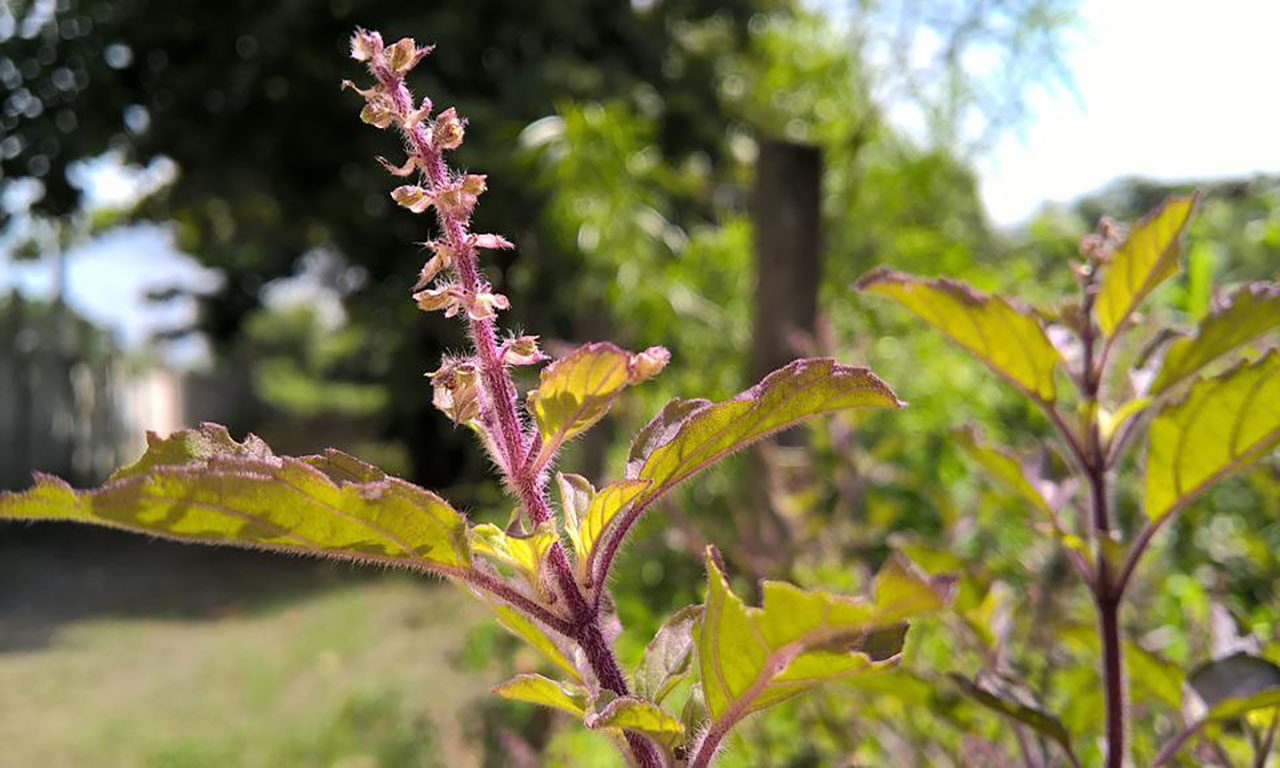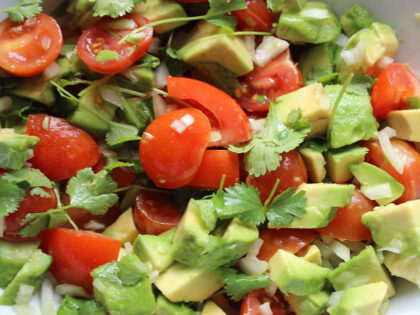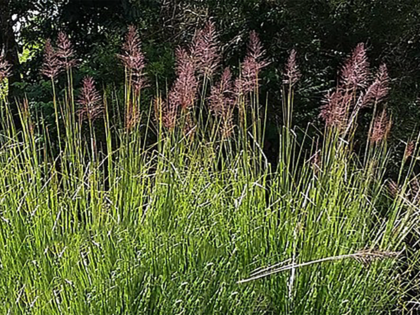Tulsi – The Queen of Herbs
-
admin
- Posted on
- 0 comments

Tulsi Benefits
Tulsi, Surasa in Sanskrit, is a common household plant in our country. Considered sacred by many, it has incredible medicinal properties. It does justice to being called the ‘Queen of Herbs’, as its health-giving and healing properties are unmatched. No wonder it has always been a leading ingredient not only in Ayurveda but also Greek, Roman and Unani medicinal systems.
Before we proceed to know more about this wonder herb, also known as Holy Basil in English, let’s understand its different types.
Here’s how you can identify them –
- The Rama Tulsi or the light variety whose leaves are greenish in color,
- Krishna Tulsi or dark variety because of its purplish color.
- Vana Tulsi, the wild form having bigger leaves and a strong distinct aroma
MEDICINAL USE:
हिक्काकासविषश्वासपार्श्वशूलविनाशनः।
पित्तकृत्कफवातघ्नःसुरसःपूतिगन्धहा॥१६
Charak Samhita
MEANING
Tulsi is effective in treating hiccups, cough, poison, dyspnea, pleural effusion, kapha, and vata, and eliminates fetor. It, however, aggravates pitta.[169]
While there are numerous benefits of this herb, we have listed a few major medicinal properties described by various Ayurveda practitioners
- Antioxidant – It has antioxidant properties and reduces blood glucose levels. Thus, it is useful for diabetics. But since it can reduce the blood sugar levels, it should be taken under a doctor’s consultation if you are on other diabetic medicines.
- Antispasmodic – A medication that relieves, prevents, or lowers the incidence of muscle spasms.
- Appetizer – stimulates one’s appetite.
- Carminative – a drug that relieves flatulence (gas in the gastrointestinal tract)
- Stomachic – promoting the appetite or assisting digestion.
- Therefore, it is used for stomach cramps, gastric catarrh (secretions), vomiting, intestinal catarrh, constipation, and enteritis (inflammation of the intestine).
- Galactagogue – helps to breastfeed the mother to increase her breast milk supply, however, intake is not recommended during pregnancy, consultation is advised with your Ayurveda doctor.
- Anti Microbial and Anti Viral – Helpful in skin related problems like acne, itching, etc.
- Immuno-modulatory properties – an agent that modifies the immune response, by the stimulation of antibody formation or the inhibition of white blood cell activity.
- Thus useful in treating cough and common colds.
GENERAL WELL-BEING
IMPACT ON DOSHAS TULSI BALANCES THE KAPHA AND VATA DOSHA IN BODY, SEEDS DECREASE PITTA DOSHA
- It reduces total cholesterol levels.
- Also reduces blood pressure, but it can interfere with blood thinners, hence intake should be in consultation with an ayurvedic doctor.
- It is also used to prepare herbal tea, as it helps in building up stamina.
- It has been used for gastric disorders, coughs, common colds, and headaches.
It is proven and certified that Tulsi can be consumed in any form – seeds, roots, leaves, etc.
Here are few simple methods that you can try at home –
- First thing in the morning. Chewing the leaves daily (4-5) is an ideal way to relieve stress and other respiratory illnesses. Try this for 21 days, then repeat the cycle in a few months or in start case of any ailments mentioned above.
- Herbal tea or concoction for cold. Boiling the leaves in water and drinking it prevents sore throat, cough and cold. Another quick remedy to treat cold is by mixing 1 tsp Tulsi juice, 1 tsp ginger and 1 tsp honey and having it 2-3 times a day for effective results. Also read our other recipes for severe cold and cough here.
- Malham (paste) Application of its paste (grounding its leaves with minimum or no water) helps maintain dental health, relieves headache, treats acne, insect bites and wounds.
- Tulsi Oil is effective for earache, hair loss and stress. It also works against insects and bacteria, can be used as mouth wash for reducing tooth ache.
CAUTIONS
While it is easy to ingest this plant, one must always remember to avoid mixing it with milk. Tulsi has a pungent temperament, that does not go with milk – making it indigestible or even toxic or acidic in some cases. A few other cautions are listed below –
- In case of hypoglycaemia or on anti-diabetic drugs
- Patients with bleeding disorders or those taking anti-coagulant or anti-platelet drugs.
- Patients who want to conceive a child due to possible anti-spermatogenic or anti-fertility effects.
- Pregnant and breastfeeding women, as Holy Basil may stimulate uterine contractions.
Yatharth
THE TULSI PLANT IS USED TO SAVE THE TAJ MAHAL FROM POLLUTANTS?
In the year 2008, Uttar Pradesh forest department and Lucknow-based Organic India Private Ltd planted one million Tulsi saplings in the vicinity of Taj Mahal to help protect the iconic marble building from environmental pollution damage.
Tulsi plant generates antibacterial and anti-inflammatory compounds that help in lowering the air pollution levels.
SAVIOR DURING COVID 19
The AYUSH Ministry approved the Recipe of a herbal decoction made of herbs - Tulsi, Dalchini (cinnamon bark), Sunthi (dry ginger powder) and krishna marich (black pepper) under the generic names - ‘Ayush Kwath’ or ‘Ayush Kudineer’ or ‘Ayush Joshanda’. This recipe has been handed out by the Ministry to states and union territories in our country, asking them to promote commercial manufacturing of the formulation which it claims can boost the body's immunity amid COVID-19. Read more
In this current superficial lifestyle, these properties of Tulsi can help us lead healthy and peaceful life!
There are many more uses of this herb for severe ailments like cancer, malaria to liver diseases. Watch out for our next article on Tulsi capturing its benefits and some recipes for a healthy skin and anti-aging!!





